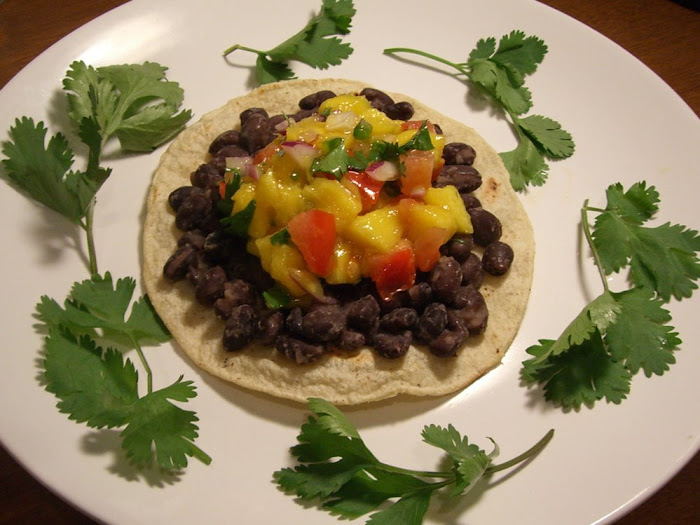
Health Benefits of Nuts? Absolutely!
Most people think that nuts are high in calories and fat... and they are right! Nuts are quite calorically dense. 15 cashews, for instance, deliver ~180 kcal! On top of that, it is very tough not to overeat these tasty snacks. If you can restrain yourself from overeating them, nuts can definitely be a part of a healthy diet.
Researchers found that people who eat nuts regularly have lower risks of heart disease. In 1996, the Iowa Women's Healthy Study found that women who ate nuts >4 times a week were 40% less likely to die of heart disease. Two years later, another study conducted by the Harvard School of Public Health found a similar result in another group of women subjects. Furthermore, potential heart health benefits of nuts were also found among men. In 2002, the Physician's Health Study found that men who consumed nuts 2 or more times per week had reduced risks of sudden cardiac death.
Go Nuts
Nuts are one of the best plant sources of protein. They are rich in fiber, phytonutrients and antioxidants such as Vitamin E and selenium. Nuts are also high in plant sterols and fat - but mostly monounsaturated and polyunsaturated fats (omega 3 - the good fats) which have all been shown to lower LDL cholesterol.
In 2003, the FDA approved the following health claim for 7 kinds of nuts
| "Scientific evidence suggests but does not prove that eating 1.5 oz per day of most nuts as part of a diet low in saturated fat and cholesterol may reduce the risk of heart disease." |
The best approach is to reap the health benefits of eating nuts but not add excessive calories to your daily intake. So instead of simply adding nuts to your diet, eat them in replacement of foods that are high in saturated fats and limit your intake of these tasty treats to 1 to 2 oz per day . For instance, instead of adding chocolate chips when making cookies, sprinkle on some nuts. Or instead of making a deli meat sandwich, try a nut butter toast.
Nuts are very healthy and nutritious. In addition to being excellent sources of protein, nuts and seeds have many other benefits such as vitamins, minerals, fiber, and other chemicals that may prevent cancer and heart disease. Although many people are hesitant to eat nuts because they are high in fat, eating nuts can provide a sense of fullness or satisfaction that actually causes you to eat less of other high-calorie, high fat foods. Additionally, nuts are high in essential amino acids and healthy fats, making them an important part of any vegan or vegetarian's diet.
Quick Page Summary: Eating nuts and seeds are a great way to add vitamins, minerals, fiber, and essential fatty acids (like omega 3 and omega 6), to your diet. Some great choices include almonds, cashews, flaxseeds (ground), peanuts, pumpkin seeds, sesame seeds, sunflower seeds, and walnuts. If you have time, you may want to purchase raw nuts and seeds and soak them in purified water for up to 24 hours; this starts the germination process, which makes them much more nutritious.
Healthy Choices
The world's healthiest nuts and seeds include:
 Almonds – Almonds are a good source of protein, vitamin E, manganese, magnesium, copper, vitamin B2 (riboflavin), and phosphorus. Almonds are also concentrated in protein; a quarter-cup contains more protein than the typical egg. Although one-quarter cup of almonds contains about 18 grams of fat, most of it (11 grams) is heart-healthy monounsaturated fat. Eating almonds can lower bad cholesterol, reduce the risk of heart disease, provide protection against cardiovascular disease and diabetes, boost energy, and help prevent gallstones. Whole almonds (with skins) provide the most heart-healthy benefits.
Almonds – Almonds are a good source of protein, vitamin E, manganese, magnesium, copper, vitamin B2 (riboflavin), and phosphorus. Almonds are also concentrated in protein; a quarter-cup contains more protein than the typical egg. Although one-quarter cup of almonds contains about 18 grams of fat, most of it (11 grams) is heart-healthy monounsaturated fat. Eating almonds can lower bad cholesterol, reduce the risk of heart disease, provide protection against cardiovascular disease and diabetes, boost energy, and help prevent gallstones. Whole almonds (with skins) provide the most heart-healthy benefits.
 Cashews – Cashews are high in antioxidants and have a lower fat content than most other nuts; additionally, 75 percent of their fat is unsaturated fatty acids. Cashews are also a good source of monounsaturated fats, copper, and a good source of magnesium and phosphorous. Eating cashews promotes good cardiovascular health, even in individuals with diabetes.
Cashews – Cashews are high in antioxidants and have a lower fat content than most other nuts; additionally, 75 percent of their fat is unsaturated fatty acids. Cashews are also a good source of monounsaturated fats, copper, and a good source of magnesium and phosphorous. Eating cashews promotes good cardiovascular health, even in individuals with diabetes.
 Flaxseeds – Flaxseeds, also known as linseeds, are an excellent source of omega-3 fatty acids. Flaxseeds may provide anti-inflammatory benefits, protect your bones, and protect against heart disease, breast cancer, and diabetes. Eating flaxseeds also lowers blood pressure in men with high cholesterol. Flaxseeds are also rich in fiber and manganese and are a good source of folate, vitamin B6 (pyridoxine), magnesium, phosphorous, and copper, and lignan phytonutrients. You'll need to grind them up first (or purchase ground flaxseed) to gain the most nutritional benefits.
Flaxseeds – Flaxseeds, also known as linseeds, are an excellent source of omega-3 fatty acids. Flaxseeds may provide anti-inflammatory benefits, protect your bones, and protect against heart disease, breast cancer, and diabetes. Eating flaxseeds also lowers blood pressure in men with high cholesterol. Flaxseeds are also rich in fiber and manganese and are a good source of folate, vitamin B6 (pyridoxine), magnesium, phosphorous, and copper, and lignan phytonutrients. You'll need to grind them up first (or purchase ground flaxseed) to gain the most nutritional benefits.
 Peanuts – Peanuts are a good source of heart-healthy monosaturated fat, flavonoid (resveratrol), antioxidants, phytosterols, phytic acid (inositol hexaphosphate), and folic acid, making them heart-healthy, a good way to reduce your risk of stroke, and possibly even cancer. Peanuts are also a good source of vitamin B3 (niacin), folate, copper, manganese, and protein, and are a significant source of resveratrol, a chemical studied for potential anti-aging effects.. Peanuts and peanut butter may also help prevent gallstones and protect against Alzheimer's disease. It wise to ensure that peanuts, especially raw ones, are stored in a cool, dry, environment (such as a refrigerator or freezer), as an extremely toxic and highly dangerous fungus (aflatoxin) can easily grow on peanuts when the temperature is between 86-96°F (30-36°C) and humidity is high.
Peanuts – Peanuts are a good source of heart-healthy monosaturated fat, flavonoid (resveratrol), antioxidants, phytosterols, phytic acid (inositol hexaphosphate), and folic acid, making them heart-healthy, a good way to reduce your risk of stroke, and possibly even cancer. Peanuts are also a good source of vitamin B3 (niacin), folate, copper, manganese, and protein, and are a significant source of resveratrol, a chemical studied for potential anti-aging effects.. Peanuts and peanut butter may also help prevent gallstones and protect against Alzheimer's disease. It wise to ensure that peanuts, especially raw ones, are stored in a cool, dry, environment (such as a refrigerator or freezer), as an extremely toxic and highly dangerous fungus (aflatoxin) can easily grow on peanuts when the temperature is between 86-96°F (30-36°C) and humidity is high.
 Pumpkin seeds / pepitas – Eating the green, hulled, pumpkin seeds (also called pepitas) may promote prostate health, protection for men's bones, anti-inflammatory benefits for those with arthritis, and help lower cholesterol. Pumpkin seeds are a good source of the essential fatty acids, potassium, phosphorous, magnesium, manganese, zinc, iron, and copper, protein, and vitamin K.
Pumpkin seeds / pepitas – Eating the green, hulled, pumpkin seeds (also called pepitas) may promote prostate health, protection for men's bones, anti-inflammatory benefits for those with arthritis, and help lower cholesterol. Pumpkin seeds are a good source of the essential fatty acids, potassium, phosphorous, magnesium, manganese, zinc, iron, and copper, protein, and vitamin K.
 Sesame seeds – Sesame seeds and tahini are rich in beneficial minerals. Not only are sesame seeds a very good source of manganese and copper, but they are also a good source of calcium, magnesium, iron, phosphorous, vitamin B1 (thiamin), zinc, dietary fiber, and healthy (monosaturated) fats. They contain powerful antioxidants called lignans, which are also anti-carcinogenic. They also contain phytosterols, which block cholesterol production. Sesame contains one lignan unique to it called sesamin. Eating sesame seeds may help lower cholesterol, provide relief for rheumatoid arthritis, and support vascular and respiratory health. The nutrients of sesame seeds are better absorbed if they are ground or pulverized before consumption.
Sesame seeds – Sesame seeds and tahini are rich in beneficial minerals. Not only are sesame seeds a very good source of manganese and copper, but they are also a good source of calcium, magnesium, iron, phosphorous, vitamin B1 (thiamin), zinc, dietary fiber, and healthy (monosaturated) fats. They contain powerful antioxidants called lignans, which are also anti-carcinogenic. They also contain phytosterols, which block cholesterol production. Sesame contains one lignan unique to it called sesamin. Eating sesame seeds may help lower cholesterol, provide relief for rheumatoid arthritis, and support vascular and respiratory health. The nutrients of sesame seeds are better absorbed if they are ground or pulverized before consumption.
 Sunflower seeds – Eating sunflower seeds may help provide anti-inflammatory and cardiovascular benefits, lower cholesterol, and prevent cancer. Sunflower seeds are an excellent source of vitamin E. Sunflower seeds are also an excellent source of linoleic acid (an essential fatty acid), dietary fiber, protein, and minerals such as magnesium and selenium, and are high in cholesterol-lowering phytosterols.
Sunflower seeds – Eating sunflower seeds may help provide anti-inflammatory and cardiovascular benefits, lower cholesterol, and prevent cancer. Sunflower seeds are an excellent source of vitamin E. Sunflower seeds are also an excellent source of linoleic acid (an essential fatty acid), dietary fiber, protein, and minerals such as magnesium and selenium, and are high in cholesterol-lowering phytosterols.
 Walnuts – Walnuts are an excellent source of omega-3 essential fatty acids. Walnuts are also a good source of manganese, and copper. Walnuts are also an important source of healthy (monounsaturated) fats. Eating walnuts may benefit your cardiovascular system, improve cholesterol in individuals with type 2 diabetes, help brain functions, protect bone health, and help prevent gallstones. Walnuts also have bio-available melatonin, which helps regulate sleep. A new study published in the Journal of the American College of Cardiology (Oct. 17, 2006) found that eating walnuts after a meal high in unhealthy fats can reduce the damaging effects of such fats on blood vessels. Walnuts also contain l-arginine, which is an essential amino acid that the body uses to produce nitric oxide, necessary for keeping blood vessels flexible.
Walnuts – Walnuts are an excellent source of omega-3 essential fatty acids. Walnuts are also a good source of manganese, and copper. Walnuts are also an important source of healthy (monounsaturated) fats. Eating walnuts may benefit your cardiovascular system, improve cholesterol in individuals with type 2 diabetes, help brain functions, protect bone health, and help prevent gallstones. Walnuts also have bio-available melatonin, which helps regulate sleep. A new study published in the Journal of the American College of Cardiology (Oct. 17, 2006) found that eating walnuts after a meal high in unhealthy fats can reduce the damaging effects of such fats on blood vessels. Walnuts also contain l-arginine, which is an essential amino acid that the body uses to produce nitric oxide, necessary for keeping blood vessels flexible.
 To Soak or Not to Soak...
To Soak or Not to Soak...
Although eating nuts and seeds, even when roasted, can be very healthy, it may be beneficial to purchase your nuts and seeds raw and then soak them in clean water for a few hours before eating them. Soaking raw nuts and seeds stimulates the process of germination, which increases the vitamin C, B, and carotenes (pre-vitamin A) content. It may also neutralize phytic acid, a substance present in the bran of all grains and seeds that can inhibit some absorption of calcium, magnesium, iron, copper, and zinc. Raw nuts and seeds also contain enzyme inhibitors that are neutralized by germination.
If you choose to soak your nuts and seeds, please follow these general guidelines:
- Getting ready: Use raw, preferably organic, nuts and seeds. Make enough for three days only. Use a glass or stainless steel bowl or jar (plastics may contain toxins). Rinse your nuts or seeds (purified or distilled water is generally preferred).
- Soak them: Place your nuts and seeds in in the bowl or jar and then cover it with something breathable, like a towel or pantyhose. Let them soak according to the following schedule (all times approximate).
- Almonds, germination time 8 – 12 hours at room temperature
- Cashews, whole, germination time 2 – 2 1/2 hours at room temperature
- Sesame seeds, germination time 8 hours at room temperature
- Sunflower seeds, germination time 2 hours at room temperature
- Walnuts, germination time 4 hours at room temperature
- All other nuts, germination time 6-24 hours at room temperature
Over the course of the soaking, drain and rinse the nuts or seeds two (2) or three (3). Each time you do this, make sure you rinse them until the water drains clear. This is especially important with nuts and seeds that soak for longer amounts of time.
- Afterwards: After you've soaked them, you may want to do a final rinse with grapefruit seed extract or organic apple cider vinegar, as these can will clean them of bacteria without being absorbed. You now have germinated nuts and seeds! You're ready to eat them. You can store the leftovers in the refrigerator for up to three (3) days.
 If the idea of soaking your nuts and seeds seems too time-consuming an endeavor for you, don't worry—many nutrients cannot be heated out of foods, like protein, vitamin E, and fiber, which are found in ample quantities inside nuts and seeds of all kinds, both cooked and uncooked.
If the idea of soaking your nuts and seeds seems too time-consuming an endeavor for you, don't worry—many nutrients cannot be heated out of foods, like protein, vitamin E, and fiber, which are found in ample quantities inside nuts and seeds of all kinds, both cooked and uncooked.
Resources
- "Back to Basics: Nuts and Seeds" by BBC Food
- The New Four Food Group by Physicians Committee for Responsible Medicine (PCRM)
- "Nuts and Seeds – Nature's Powerhouses" by Allison Anton
- Vegan Food Pyramid by ChooseVeg.com
Sesame Almond Slaw Recipe
1 head cabbage head – napa – shredded
1/2 cup sesame seeds
1/2 cup slivered almonds
4 spring onion – chopped
2 tablespoons butter
Dressing:
1/3 cup red wine vinegar
1/2 cup olive oil
1/2 tsp. Stevia
1 teaspoon sea salt
1/4 teaspoon pepper
How to Prepare:
Saute sesame seeds and almonds in butter. Add this to cabbage and
spring onions. Refrigerate. Mix dressing and pour over salad. Serves
Nutty Seed Snack Recipe
1 1/2 cup almonds -- roasted and salted
1/2 cup soy nuts -- roasted and salted
1/4 cup cashews -- roasted and salted
3/4 cup unrefined coconut -- unsweetened 2 tablespoons oil
1/4 cup water
3/4 cup pumpkin seeds, roasted
1 teaspoon cinnamon
1/2 teaspoon vanilla
2 T. Organic maple syrup grade B
1/8 teaspoon salt
Dissolve the maple syrup in water and add the oil and vanilla. Mix all of the dry ingredients. Mix everything together thoroughly.
Transfer to a large roasting pan with sides. Bake at 325 degrees for about 30 minutes--stir occasionally. Cool and store in air tight container.
Toasted Spiced Walnuts
2 cups walnuts
1 tablespoon Organic maple syrup grade B
1/2 teaspoon garlic powder
1 teaspoon sea salt
1/2 teaspoon ground cumin
1/4 teaspoon cayenne pepper
1 tablespoon walnut oil
Plunge walnuts into a pot of boiling water, turn off pot and let stand 2 minutes.
Drain and spread walnuts on a baking sheet and toast in a 400F oven for 10 minutes.
Measure seasonings in a bowl and stir. Heat oil in a skillet.
Add toasted nuts and toss 1 minute. Add seasoning and toss until nuts
are coated. cool on a paper towel.
via FoxyTunes
----------------
Now playing on iTunes: Prince - Love














No comments:
Post a Comment